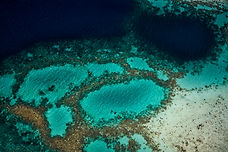
Pacific Conservation Database
Biodiversity and Protected Areas Management (BIOPAMA) Programme
PIRT Member organisations
International Union for the Conservation of Nature - Oceania Regional Office (IUCN-ORO), Secretariat of the Pacific Regional Environment Programme (SPREP), Conservation International (CI)
Other partner organisations
Joint Research Centre of the European Commission (JRC)
United Nations Environment Programme World Conservation Monitoring Centre (UNEP-WCMC)
Countries of implementation
Regional
About
BIOPAMA On-granting: 14 grants have been awarded with a value of nearly 1.5 million euro:
· The first SAPA (Social Assessment for Protected and Conserved Areas) assessment was carried out in Papua New Guinea. Tree Kangaroo Conservation Program (TKCP) and its Assessment consultant adhered to the International Institute for Environment and Development’s “Methodology Manual for SAPA for Facilitators".
· While Tree Kangaroo Conservation Program (TKCP) has periodically used the Management Effectiveness Tracking Tool for the purpose of internal self-evaluation over the course of the YUS Conservation Area’s 12-year history, the two assessments (METT & SAPA) mark the first independently facilitated, multi-stakeholder evaluation processes undertaken to date.
· The Establishment of the METT Assessment on Atauro Island, Timor-Leste project represents the first time the METT Tool has been used to generate assessment scores for a Protected Area (PA) and MPA in Timor-Leste.
· In PNG, the grantee was able to purchase field equipment and carried out training to collect data in up-to-date village land use plans for 51 villages in total and they all have their conservation area boundaries and clan signatures joined to them. It was also the first time for Tenkile Conservation Alliance to be able to provide brand new equipment to support their work.
· In Solomon Islands the rapid response grant has provided much needed income to support rangers to continue carrying out patrolling activities for the protected areas.
· In a remote location in Vanuatu through the rapid response grant to Santo Sunset environmental Network, they have been able to promote the role of women in leading sustainable development, environmental protection and COVID resilience in Vanuatu. The project has also empowered indigenous rangers to undertake strengthened activities within the boundaries of their self-established community conservation areas and traditional taboos.
· The Rapid Response Grant in Samoa has enabled the Samoa Conservation Society (SCS) to engage two communities on the restoration of degraded rainforests, including the planting of native trees and bird monitoring of endemic birds such as the Manumea and Lupa.
BIOPAMA Knowledge Products:
Three knowledge products have been developed, including the ‘Conserving our sea of islands: State of protected and conserved areas in Oceania’ report, launched on 2oth October. The development of two other key knowledge products and technical reports was initiated in this period: (i) Pacific Natural World Heritage status and opportunities report, the launch is expected to be in late 2022 early 2023 and (ii) Ecosystem Services Assessment of Timor-Leste’s protected areas, for which the draft prepared by JRC has been reviewed by implementing partners and Conservation International.
Framework Action Tracks
01 – Our people at the centre of conservation action, 02 – Behaviour change for nature conservation through heritage and cultural expressions, 09 – Effective terrestrial protected areas
Status
Ongoing
